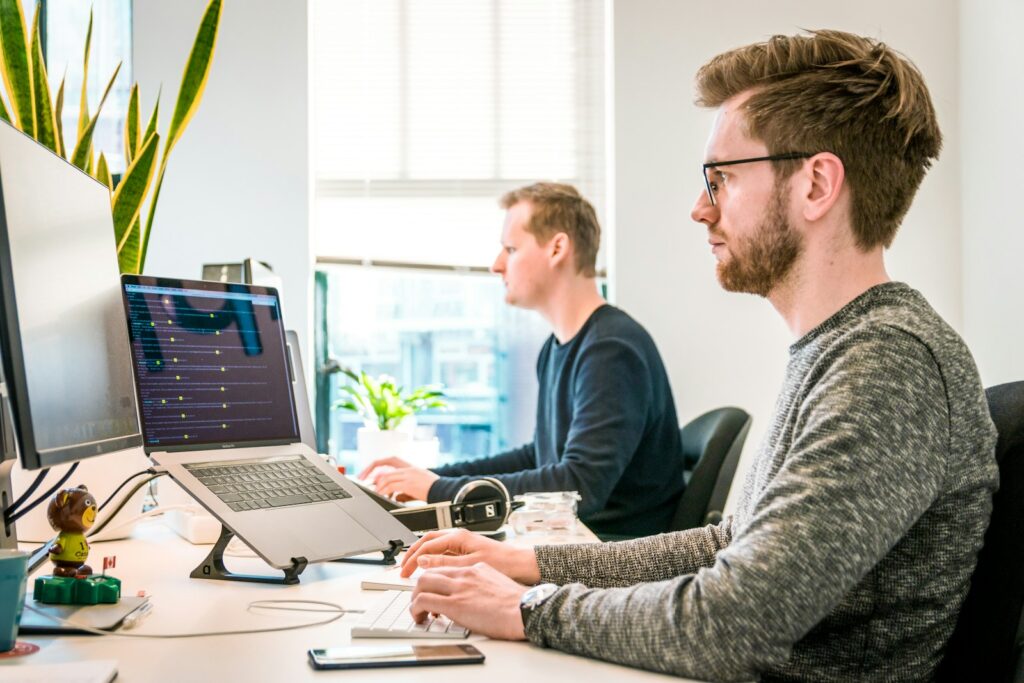
The notion of a career spanning decades within a single industry or employer is rapidly becoming outdated. Millions of professionals in their 40s, 50s, and even 60s are embarking on transformative midlife career changes. Far from being a sign of desperation, this shift reflects a conscious decision to pursue long-deferred passions, escape burnout, or reclaim control over one’s professional and personal narrative. Research indicates that the average person changes careers around age 39, highlighting that later-life pivots are both common and often highly rewarding.
Reaching a point where existing achievements no longer inspire can be unsettling. Decent pay, solid benefits, and job stability may feel hollow. Persistent boredom, burnout, or the inability to envision another decade on the same path signals a psychological need for change. Listening to these internal cues often initiates reflection and motivates a realignment toward work that resonates with deeper values.

Poor Work-Life Balance: A Hidden Driver
A critical factor driving midlife career change is the erosion of work-life balance. Long hours, rigid schedules, and chronic stress can take a significant toll on mental and physical health. Many midlife professionals reach a stage where they refuse to settle for a life dominated by work and recognize the personal costs of imbalance.
The desire for equilibrium reflects a psychological need for control and restoration. Sacrificing personal time and relationships for professional obligations triggers clear distress signals from the mind and body. Listening to these signals transforms chronic stress into motivation for change. Midlife pivots are often less about chasing external success and more about prioritizing health, flexibility, and well-being.
From a psychological perspective, this shift represents evolving self-awareness and a re-evaluation of values. Individuals increasingly seek careers that support a balanced, healthy life, focusing on internal fulfillment over external validation.

Escaping Toxic Work Environments
Even high-paying roles can become unsustainable in toxic workplaces. Poor leadership, unhealthy team dynamics, and pervasive office politics can make substantial salaries feel insufficient compensation for emotional strain. Midlife professionals often prioritize mental and emotional well-being over traditional markers of career success.
The human need for connection and belonging is central, and when undermined by negativity or disrespect, it can result in anxiety, depression, and diminished life satisfaction. Leaving destructive environments is an act of self-compassion and boundary assertion, reflecting a mature understanding of personal needs and the importance of daily workplace positivity.

Seeking Meaningful Work and Alignment with Values
Beyond escaping negative circumstances, midlife professionals are increasingly drawn to work that aligns with personal values and leverages unique strengths. Roles that once felt functional may no longer resonate, prompting a quest for purpose. Research from the University of Michigan shows that meaningful work can reduce the risk of early death by up to 15%, underscoring the link between purpose and well-being.
Midlife reflection often leads to a shift from asking “What can I achieve?” to “What impact do I want to make?” Identifying personal values, interests, and motivations is essential for selecting a career that supports authentic fulfillment. Journaling and introspection provide clarity, guiding individuals toward opportunities that harmonize with their life stage and deeper sense of purpose.

Financial Considerations and the Myth of Risk
A common barrier to midlife career change is fear of financial instability. Concerns about losing income, benefits, or retirement security are natural but often overstated. Data from the OECD shows that individuals aged 45–54 who voluntarily change jobs see an average wage growth of 7.4%, with 55–64-year-olds experiencing a 3.5% increase. Side Hustles reported a 35% salary increase over three years for job changers, nearly double that of long-tenured employees.
Long-term employability also improves; a 60-year-old who changed jobs between ages 45 and 54 has a 62% likelihood of continued employment, eight percentage points higher than peers who remained in the same role. Midlife career changes, when approached strategically, can be financially rewarding while safeguarding well-being.

Reclaiming Autonomy and Redefining Success
Many midlife professionals seek autonomy and control over their work. Flexible, self-directed careers enable individuals to define success on their own terms. The OECD projects that by 2050, one in six workers globally will be over 65, highlighting the importance of meaningful work in later life.
This pursuit may involve transitioning to consulting, adjacent industries, entrepreneurship, or freelance work. Leveraging accumulated experience allows professionals to craft roles that reflect their current priorities, creating a sustainable and enriching professional life focused on fulfillment, contribution, and legacy.

Reframing Midlife as Opportunity
Midlife is often viewed as a crisis, but it can be a period of profound reinvention. Past experiences and accumulated wisdom provide a foundation for confident career pivots. Women in their 40s and 50s often experience heightened self-awareness, reduced concern for others’ opinions, and a readiness to pursue meaningful change.
Viewing midlife as an opportunity rather than starting over allows individuals to expand their identity and leverage resilience built over decades. This mindset shift fosters growth and potential, turning accumulated experience into a powerful asset for the next chapter.

Trusting Intuition and Emotional Intelligence
Successful midlife transitions involve trusting internal signals. Intuition and emotional intelligence serve as guides, helping individuals navigate decisions aligned with personal values. Recognizing emotions as compasses rather than obstacles allows for more confident, informed choices.
Practical exercises include journaling feelings and asking, “What is this emotion trying to tell me?” This approach transforms abstract emotions into actionable insights, supporting strategic decision-making and reinforcing trust in one’s inner guidance.

Cultivating Self-Awareness
A deep understanding of personal values, interests, and motivations is essential before making any career shift. Reflecting on what energizes and fulfills allows midlife professionals to align new opportunities with authentic desires. Journaling top values and assessing how current roles support or hinder them provides clarity and ensures that career pivots are purposeful rather than reactive.
This self-awareness serves as a foundation for filtering options, designing a career that reflects who individuals have become, and fostering internal fulfillment.

Strategic Skill Building
Once clarity emerges, acquiring new skills relevant to desired career paths is critical. Online learning platforms such as Coursera, LinkedIn Learning, and edX provide flexible opportunities for upskilling. Practical application, such as completing a targeted course within a defined timeframe, demonstrates commitment and builds credibility.
Combining accumulated experience with new skills positions midlife professionals as “starting from experience,” ready to pursue new opportunities confidently.

Reshaping Professional Narrative
A confident career pivot requires presenting a coherent professional story. Resumes and LinkedIn profiles should highlight transferable skills such as leadership, problem-solving, and communication. Articulating accumulated wisdom and new competencies positions individuals as prepared for their next chapter, rather than emphasizing gaps.
Strategic rebranding ensures that career changes are framed as natural evolutions, connecting past achievements with future aspirations.

Leveraging Networks and Exploring Opportunities
Networking enhances midlife career transitions. Reaching out to mentors, colleagues, and peers who have undergone similar changes provides insights and guidance. Professional communities like Encore.org or Meetup offer supportive environments.
Testing new paths through freelance projects, side hustles, or volunteering allows low-risk exploration. This approach mitigates uncertainty, provides real-world experience, and builds confidence before fully committing to a new direction.

Midlife career change is more than a trend; it is a deliberate journey of self-discovery, strategic evolution, and renewed purpose. By leveraging experience, emotional intelligence, and newfound skills, professionals can design a fulfilling and meaningful future. Trust your intuition, embrace the journey, and craft a chapter defined by authentic achievement and profound satisfaction.



